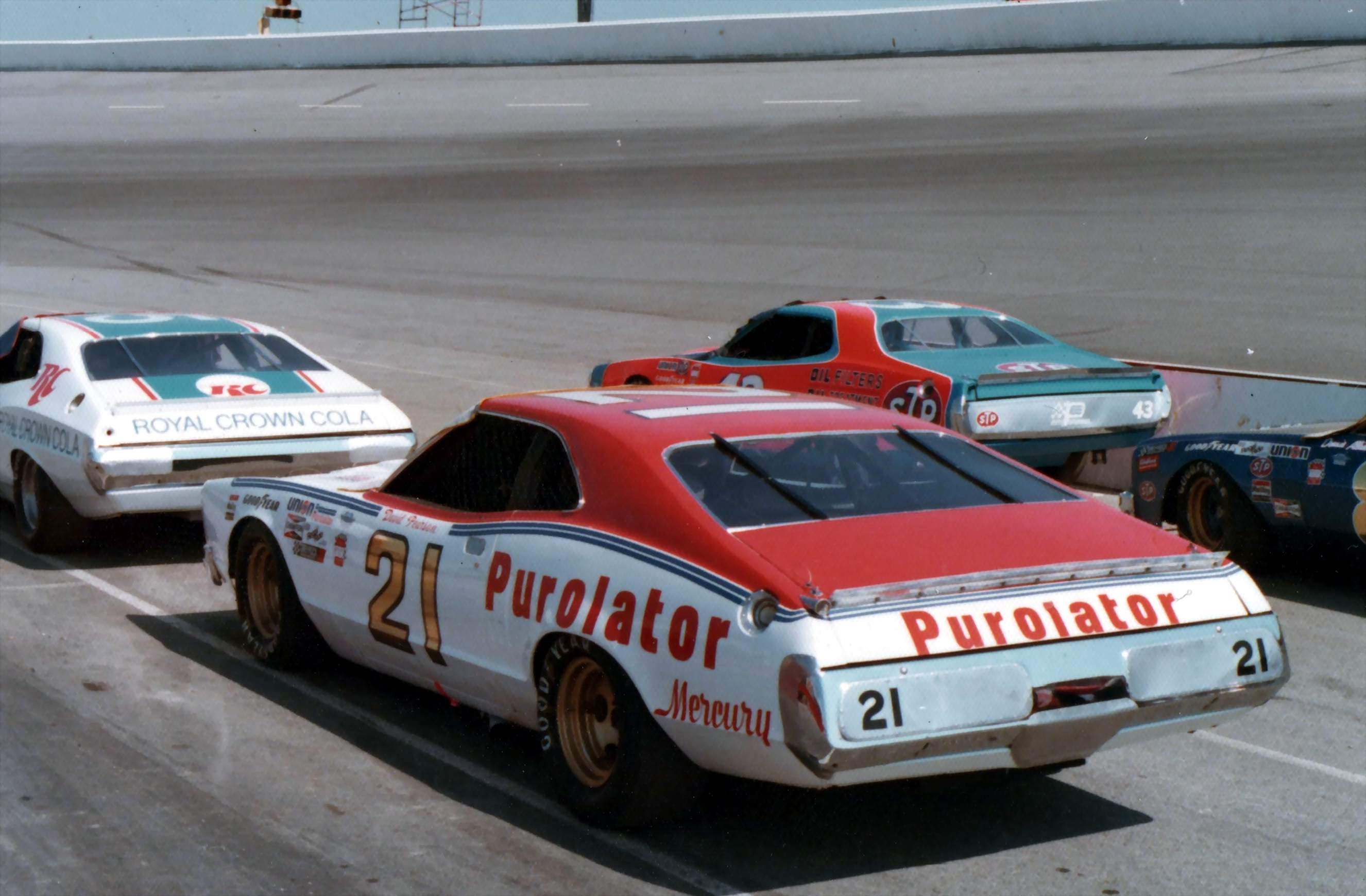Before I get into this, let me assure you that my NASCAR fan pedigree is pure—hardcore, even.
I lived in Anniston, Alabama—20 minutes from what was then known as the Alabama International Motor Speedway—until I was 15 years old. I enthusiastically attended many Winston 500s and Talladega 500s. (That’s not what they’re named anymore, but no one I knew ever called them that anyway. They were “the May race” and “the summer race.” It was always about 175 degrees at the summer race, which is most of the reason it’s in October now.) Went to school with Don Naman‘s kids. Saw, live and in person, Bill Elliott run his record lap around Talladega, a hair’s width from 213 mph. Dad gave me a subscription to the Southern MotoRacing newspaper every year for my birthday.

I’ve been paying attention for a very long time. I’ve been right up next to it. I dug it. Still do, in some ways.
However, I quit following it actively for 2015, and even had a smart-alecky bullet or two in a Thursday miscellanea about it. All of the manufactured drama surrounding the chase, or the shootout, or whatever it’s called now led to street fighting that NASCAR sort-of-but-not-really scolded the participants about. Between that and Kurt Busch babbling about secret agents and assassins and whatever else, it all just got a little too pro-wrestling for me.
(But psssst…that probably wouldn’t have done it in for me were the on-track product more exciting. But it’s not. It’s boring. On the whole, in 2015, NASCAR is boring.)
Admittedly, there are still moments. Darlington is reliably entertaining because it’s so technical and unforgiving. Michigan is great because it’s long, but it’s not banked much at all, so they don’t run restrictor plates. It’s really the only fast NASCAR track left.
Speaking of, restrictor plate races are the worst. I remember when a start or restart at Talladega gave you genuine chills. Today, it takes the drivers a lap and a half—four miles!—just to get up to full speed. That green flag waves, and all you really notice is the pitch of the engines changes a little. There is certainly no lunge from the pack. It’s like watching 40 school buses huff and puff. (IndyCar drivers are going 200 mph by Turn 1 at Indianapolis, and they’re at 225+ next time across the bricks.)
Mind, I understand and agree with the rationale. It was the year after we moved so I wasn’t there, but my dad’s business partner was sitting on the front straightaway when Bobby Allison had the accident that brought us restrictor plates (and better catch fences):
Several spectators were injured, but on balance, there was a lot of luck here. Watch that again, keeping in mind that the fence was utterly destroyed. Had it given half a second sooner, with the car carrying that much more energy into the stands, it might have killed 100 people.
So something had to be done. The problem with the response was the same as the problem with the response to Dale Earnhardt’s death (which ultimately brought us the Car of Tomorrow).
There is no genuine innovation.
Are the drivers, crews, and fans safer? Unquestionably. But they’d have been safer if we’d just shut the whole thing down too. So in some ways, that’s a rather academic point.
Bobby Allison’s 1987 accident and Dale Earnhardt’s death in 2001 were two large opportunities to rethink the entire sport, and they were both squandered.
So what’s to be done?
Stay tuned, dudes and dolls.
(Read Part II.)
You might also like:
- Do it, Danica!
I’m going to watch the Indianapolis 500 in a bit. It will be the first one I’ve seen in 20 years or … - What NASCAR has become, Part III
(Please read Part I and Part II first.) So what do we do to bring genuine excitement back to NASCAR?… - Formula One to import NASCAR fan base
Citing declining revenues, as well as continued lack of American interest in the sport, the Fédérati… - What NASCAR has become, Part II
(Please read Part I of this post first.) NASCAR has become boring for one big reason. It has complet… - Howdy from Talladega!
Just kidding. I haven’t been in 25 years or so, but I’m still sure I’ve done it enough to last me th…

It is amazing that no one was killed in that wreck. Wow. I remember Kenny Schrader sp(?) having an end over end wreck that was very scary as well.
You know we’ve both seen lots of racing crashes. The single biggest I-can’t-believe-he-didn’t-die crash that I ever saw was Geoff Bodine’s truck crash at Daytona in 2000.
He kept the wreckage on display in his shop as a daily reminder of how much God had his back that day.
If you’ve only ever seen restrictor plate racing at Talladega, check out this video. This is the beginning of the 1986 Winston 500 (and includes a comical bit on the front end with some idiot absconding with the pace car). Advance to about 12:25 to look at it from right before the green flag.
Watch it at least through the second lap to get a full appreciation of the difference. This is what every Talladega race I ever attended looked like.
Unbelievable. I haven’t ever seen that Bodine crash. I am speechless. So, horrific.